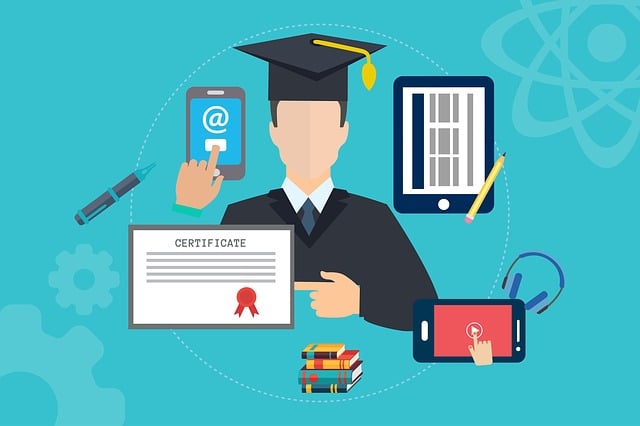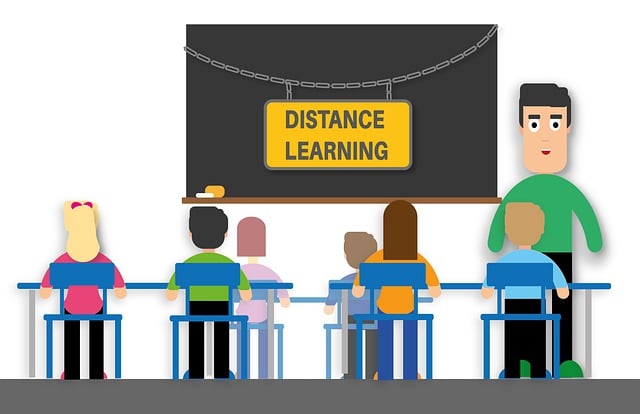Local tutoring and education services are essential in today's competitive academic landscape,…….
Category: Local Tutoring and Education Services
Introduction
Education is a cornerstone of human development, shaping the minds and futures of individuals across the globe. Within this broad spectrum of educational endeavors, local tutoring and education services play a pivotal role. These services offer personalized learning experiences tailored to the unique needs of students in various communities. This article delves into the intricacies of these services, their global impact, economic significance, technological advancements, policy landscape, challenges, and future prospects. Readers will gain a comprehensive understanding of how local tutoring and education services contribute to the educational ecosystem and what they entail for learners, educators, and communities at large.
Understanding Local-Tutoring-and-Education Services
Local tutoring and education services encompass a wide array of educational support systems that operate outside traditional school settings. These services are designed to complement the formal education system by providing additional academic assistance, tutoring, mentorship, and enrichment programs. They are characterized by their accessibility, adaptability, and personalized approach to learning.
Historically, tutoring has been a form of individualized instruction dating back to ancient civilizations. However, the concept has evolved significantly with advancements in educational methodologies and technological tools. Today, local tutoring services range from one-on-one sessions to group workshops, online courses, and after-school programs, all aimed at enhancing students’ learning experiences.
The significance of these services lies in their ability to address the diverse educational needs of learners, bridge gaps in knowledge and skills, and promote academic success. They are integral to a robust educational system, offering support to students who may be struggling or seeking enrichment beyond the curriculum.
Global Impact and Trends
The impact of local tutoring and education services is felt worldwide, with varying degrees of influence across different regions. In developed countries, these services are often seen as a supplement to an already robust educational system, while in developing countries, they can be a lifeline for children who may not have access to quality education otherwise.
Key trends shaping the trajectory of local tutoring and education services include:
- The increasing use of digital platforms for remote learning and tutoring.
- A growing emphasis on personalized and adaptive learning technologies.
- A shift towards holistic education that emphasizes critical thinking, creativity, and emotional intelligence alongside academic skills.
- An expanding focus on early childhood education and lifelong learning opportunities.
In regions like Asia, there is a trend of ‘academic tutoring’ or ‘cram schools’, where students attend additional classes to prepare for high-stakes exams. In contrast, Latin America has seen a rise in community-based tutoring initiatives aimed at supporting underprivileged communities. North America and Europe have leveraged technology to create scalable education models that reach a wider audience.
Economic Considerations
The local tutoring and education services sector is a significant contributor to the global economy. It represents a substantial market with billions of dollars in investment, reflecting its importance in human capital development. The economic aspects of this sector include:
- Market dynamics that drive competition and innovation within the industry.
- Investment patterns that indicate a strong belief in the future of personalized education.
- Its role in supporting economic growth by equipping individuals with the skills necessary for the workforce.
Investments in this sector are not limited to direct educational services but also extend to edtech startups, learning management systems, and online content creators. The economic impact is further magnified when considering the long-term benefits of educated populations on national GDPs and global competitiveness.
Technological Advancements
Technology has been a game-changer for local tutoring and education services. Innovations such as artificial intelligence, machine learning, and virtual reality have opened new frontiers in personalized learning and content delivery. These advancements include:
- Adaptive learning software that tailors educational material to the learner’s pace and style.
- Online platforms that facilitate real-time interaction between tutors and students globally.
- Virtual and augmented reality applications that provide immersive learning experiences.
The future potential of these technologies lies in their ability to further customize learning paths, predict student performance, and offer scalable solutions to educational challenges. The integration of technology in education is expected to continue at a rapid pace, with new advancements likely to emerge as the sector adapts to evolving needs.
Policy and Regulation
The governance of local tutoring and education services is shaped by a complex array of policies and regulations. These frameworks are designed to ensure quality, accessibility, and fairness within the educational marketplace. Key considerations include:
- Accreditation standards for educational programs and institutions.
- Data privacy laws that protect student information.
- Regulations that address the qualifications and background checks for educators and tutors.
Policy decisions have a profound impact on the availability, quality, and affordability of these services. In some regions, governments subsidize or provide free access to tutoring programs as part of their national education strategy. In others, the market is more deregulated, allowing for a diverse range of providers to enter the space.
Challenges
Despite its potential, the local tutoring and education services sector faces several challenges. These include issues related to accessibility, quality control, funding, and the digital divide. Other challenges include:
- Ensuring that educational technologies are inclusive and accessible to all learners, regardless of socioeconomic status.
- Addressing the disparities in educational outcomes that often correlate with economic and social inequality.
- Balancing the benefits of technology-driven education with the need for human interaction and mentorship.
Efforts to overcome these challenges require collaboration between governments, educators, technology developers, and community organizations. By working together, stakeholders can create a more equitable and effective educational landscape.
Future Prospects
The future of local tutoring and education services is bright, with potential for significant growth and impact. Advancements in technology, changes in policy and regulation, and a growing recognition of the importance of education will continue to shape this sector. The prospects include:
- A more personalized and adaptive approach to learning that meets individual needs.
- Broader access to educational resources through innovative technologies and platforms.
- A stronger emphasis on lifelong learning and continuous skill development in a rapidly changing world.
As the sector evolves, it will play an increasingly vital role in preparing individuals for the challenges and opportunities of the future. The potential for local tutoring and education services to transform lives and communities is immense, provided that the challenges facing the sector are effectively addressed.
In conclusion, local tutoring and education services represent a dynamic and evolving field with significant implications for individual learners, communities, and the global economy. By understanding the historical context, current trends, economic impact, technological advancements, policy considerations, challenges, and future prospects, stakeholders can navigate this complex landscape and contribute to its positive evolution. As we look to the future, it is clear that local tutoring and education services will remain a cornerstone of educational success and innovation for generations to come.
Mastering Tests: Leveraging Local Tutoring and Education Services
Local tutoring and education services are powerful tools for effective test preparation, offering pe…….
Local Tutoring: Unlocking Reading and Writing Skills in Elementary Students
Local tutoring and education services significantly enhance elementary education by offering persona…….
Optimizing Learning: In-Home Tutoring for Busy Families
In-home tutoring offers a flexible, convenient solution for busy families seeking to enhance their c…….
Mastering Tests: Unlocking Success with Local Tutoring Strategies
TL;DR:Understanding exam formats, including question types (multiple-choice, essay, etc.), is crucia…….
Maximizing Learning: Local Tutoring for Homeschooling Success
Homeschooling offers flexibility but requires expert guidance to meet individual student needs. Educ…….
Unleash Creativity: Local Art & Dance Classes for All Levels
Local art and dance classes, facilitated by Local Tutoring and Education Services, provide a vibrant…….
Unleashing Potential: Local Tutoring for Special Needs Education
Special needs tutors are vital for local tutoring and education services, catering to diverse learni…….
Personalized Learning: Local Tutoring Strategies for Unlocking Individual Potential
Local Tutoring and Education Services (LTES) personalize learning experiences by assessing individua…….
Expert Tutors for Special Needs: Unlocking Potential with Local Education Services
Special needs tutoring is a specialized field that provides personalized learning experiences tailor…….










